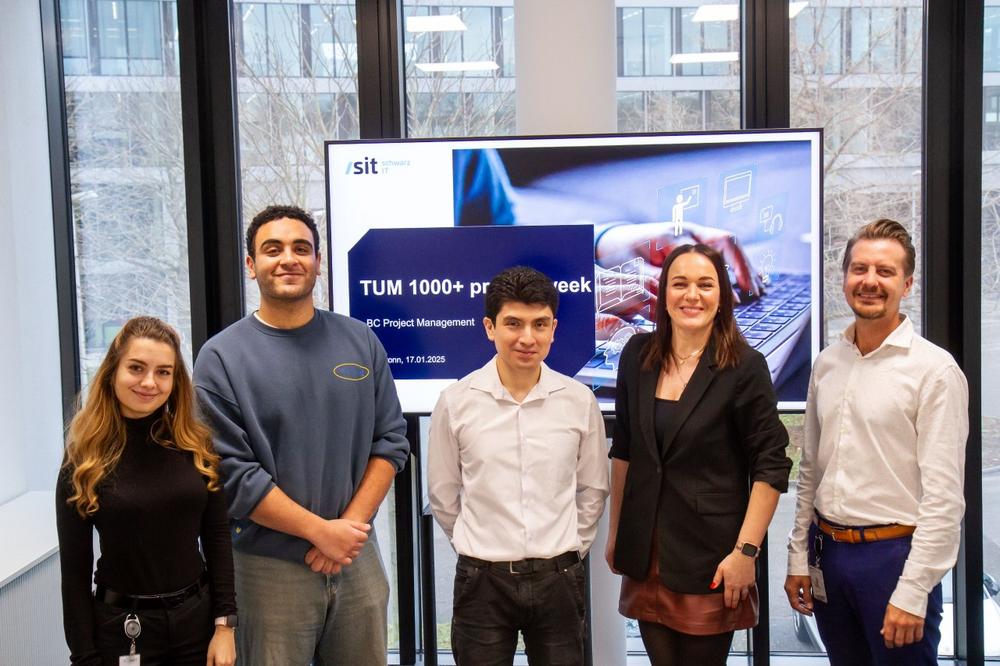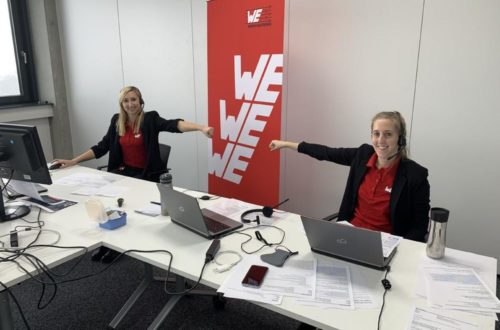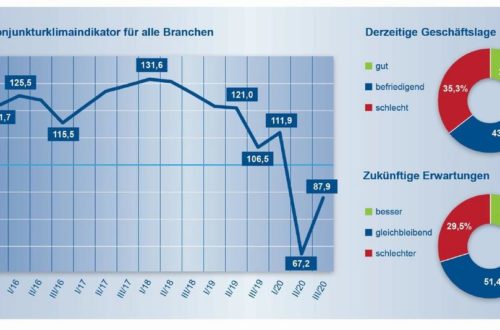
TUM students bring fresh ideas to companies
They come from the Peruvian highlands and the Egyptian metropolis, and their further education led them to the TUM Campus Heilbronn: Jose Alexis Olivares, a Master’s student in Management & Digital Technology, and Mohamed Ghayad, a Master’s student in Information Engineering. For one week, they entered the world of Schwarz IT, where they were able to solve a real entrepreneurial task as part of the “1000+ Project Week”.
They are nervous on the last day before their final presentation. But there is no reason to be. After all, Ghayad and Olivares have devoted themselves thoroughly to their challenge during this week. Schwarz IT’s task was: “Develop a tool with which we can automatically test the processes of our project management software for errors.” Such a digital tool eliminates the need for laborious manual checks. A not inconsiderable advantage for the company and a responsible task for the two students, who developed a suitable tool with the help of Java and Playwright in the limited time of just a few days. “We had to put in a few night shifts,” say the two with a smile, and you can sense their relief at what they have achieved.
Errors discovered in a matter of seconds
The developed test automation really does save a lot of time. Mohamed Ghayad has calculated that it speeds up the testing process fivefold. He demonstrates this on the screen. If the tool detects an error, it spits it out as a video sequence within a few seconds. Business Consultant Inna Wallbaum, who helped supervise the project, is grateful: “The two TUM students have provided us with a good infrastructure that we can now expand and actually use.”
Challenge-based learning also at Münzing
Meanwhile, a team of four from TUM is working at Münzing, a manufacturer of specialty additives near Heilbronn: Natalie Schürmann studies Chemistry, Nagarajan Varadharajan Sustainable Management and Technology, Sriram Sivasubramanian and Komal Raina Chemical Biotechnology. Their task: to establish an innovation process for a chemical company specializing in additives.
It was a long way from the initial ideas to the final presentation, which the four of them mastered in the limited time available. Some extra hours were necessary: Innovation Manager Jörg Wollschläger, who supervised the group together with Oliver Kindermann, Head of the Innovation business unit, is impressed by the quartet’s work ethic: “Following our daily feedback session, they were still fine-tuning their presentation from 8.30 p.m. to 2 a.m. last night.”
Investing in biotechnology
The results are impressive: They have developed a tool to evaluate new ideas based on their feasibility, relevance and potential impact. And the students also provided a case study: they suggested that company representatives focus more on biotechnology and launch bio-based additives on the market. These can be produced from fruit peel and seeds or plant proteins, for example. The company could also pay more attention to biodegradability – the students suggest natural products such as xanthan gum, rosin resin or rice bran wax. They have come up with an implementation roadmap for this.
Wollschläger and Kindermann are impressed. “The discussions, not just the result, helped us,” says Wollschläger. Of course, the students‘ ideas still need to be worked out, but they are certainly a valuable basis.
Concept for the future at Bechtle
Five young men and women from Asia are working at Bechtle, one of Europe’s leading IT service providers, on a real business challenge in the context of an AI project in an early development phase. Modern AI systems increasingly use external input and are constantly trained by human feedback using “human in the loop” algorithms. In order to increase acceptance of the required human feedback, Bechtle is working with TUM at an early stage to develop a fair compensation concept for the future.
The students Ying Chen, Mohit Pramod, Mohammadreza Khosravizadeh, Mayank Kalia and Shabnam Khosravanizangeneh are currently completing their Master’s degree at the TUM Campus Heilbronn. Mohammadreza is taking part in the project week for the second time this year. “For me, it was a valuable learning process and an opportunity to work with people from different professional backgrounds and perspectives,” he says, looking back.
Feedback from the project sponsor
The project group is supervised by Pit Ogermann, Head of AI Research & Strategy at Bechtle, and working student Nelli Dreger from Heilbronn University. Ogermann is full of praise for his protégés: “What particularly impressed me was the students‘ open-mindedness.” The exciting question remains: will the concept be used? "It’s a very good initial idea. The actual implementation in this environment is still some time in the future. However, it was important for us to address the issue at an early stage. We know that: If AI technology continues to develop as it has done so far, it will change the working world at Bechtle," says Pit Ogermann.
Long-term fruitful collaboration
The feedback from the students is consistently positive. Mohamed Ghayad sums up their experience: "The collaboration was a lot of fun. Everyone here was so accommodating and friendly. I give the campaign a 12 on a scale of 1-10!" And Nagarajan Varadharajan adds: “The way our supervisors looked after us was perfect.”
But the supervisors on the company side are also full of praise: "The TUM students were ambitious and highly motivated. Our doors will remain open to them in the future," says a delighted Inna Wallbaum.
And Oliver Kindermann is certain: “We have gained potential specialists for the future.”
While the students benefited from challenge-based learning in interdisciplinary teams as well as insights into company culture, the companies also used the “1000+ Project Week” as an ideal opportunity for employer branding. That sounds like a fruitful long-term collaboration between TUM and SMEs in the Heilbronn region.
More information about the “1000+ Project Week” can be found here.
Die TUM Campus Heilbronn gGmbH
Bildungscampus 2
74076 Heilbronn
Telefon: +49 (0) 7131 264180
Telefax: +49 (7131) 645636-27
https://www.chn.tum.de/de
Telefon: +49 (7131) 26418-501
E-Mail: Kerstin.Besemer@tumheilbronn-ggmbh.de
![]()





